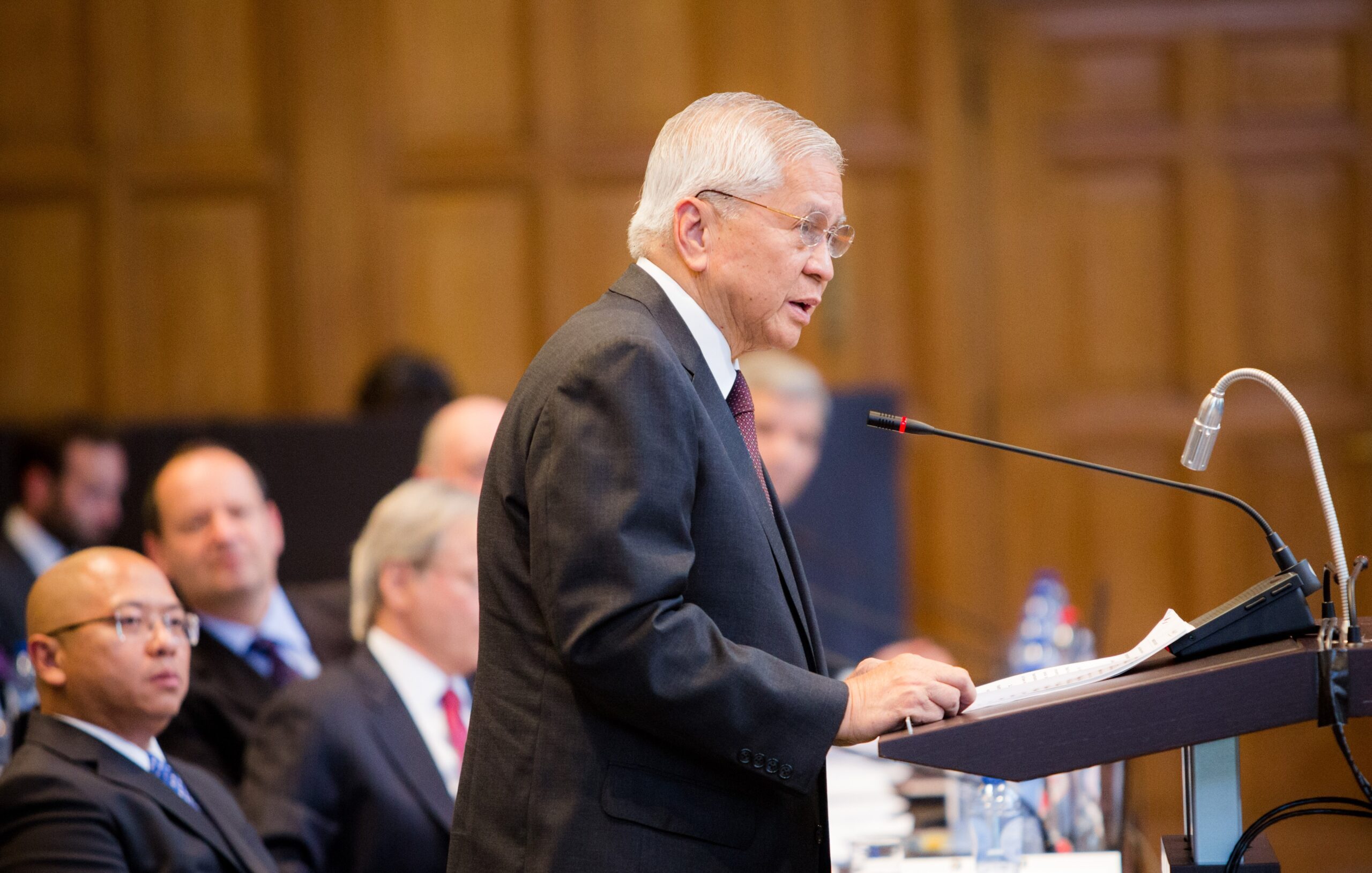SUMMARY
This is AI generated summarization, which may have errors. For context, always refer to the full article.

MANILA, Philippines – The Philippines on Thursday, January 7, said it fears that China will create an Air Defense Identification Zone (ADIZ) in the West Philippine Sea (South China Sea) after conducting test flights over the disputed waters.
An ADIZ will likely require planes to seek China’s permission before flying over the West Philippine Sea, the subject of a decades-long dispute between Manila and Beijing.
In a media briefing on Thursday, Philippine Foreign Secretary Albert Rosario said, “We’re very concerned about the fact that China had already flown their flights to Fiery Cross Reef, and we’re also concerned that they’re planning to do more.”
Referring to the test flights, Del Rosario added: “If this is not challenged, we will have a situation where China will take the position that the ADIZ could be imposed, whether this is done in terms of a de facto basis, or whether it is official.”
“Of course this will be deemed as unacceptable to us,” he said.
The Philippines also said it will protest these test flights.
ADIZ ‘a form of early warning’
This comes after Chinese state media reported on Wednesday, January 6, that China landed two more planes on the contested Fiery Cross Reef (Kagitingan Reef) in the South China Sea.
“This successful test flight proves that this airport is equipped with the capacity to ensure the safe operation of large civilian aircraft,” state-run news agency Xinhua said.
It added that the facility would help transport supplies, personnel, and medical aid.
Many countries, including the US and Japan, use ADIZs as a form of early warning, allowing them to track aircraft approaching their airspace.
Planes entering the area are frequently asked to identify themselves and to maintain radio contact with local authorities.
Any aircraft causing concern can trigger the launch of fighter jets, which are scrambled to intercept it.
UK pushes for international law
Reacting to China’s test flights, British Foreign Secretary Philip Hammond said, “Freedom of navigation and overflight are non-negotiable.”
Hammond, who was visiting Manila, also said his country is not siding with any party in the South China Sea dispute.
Still, Hammond said the UK believes that “that disputes of this nature should be resolved in accordance with established principles of international law.”
He also said the UK “will recognize the decision” of the arbitral tribunal handling Manila’s case against Beijing over the South China Sea.
The tribunal in The Hague, Netherlands, is expected to issue a ruling this year.
China claims virtually all the South China Sea, while the Philippines, Vietnam, Malaysia, Brunei and Taiwan also have partial claims. (READ: Q and A: Is South China Sea now a superpowers’ battleground?) – with reports from Agence France-Presse/Rappler.com
Add a comment
How does this make you feel?
There are no comments yet. Add your comment to start the conversation.